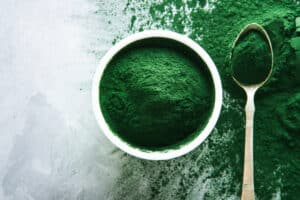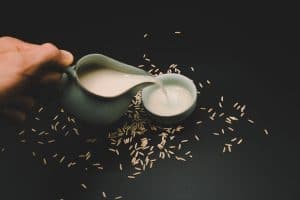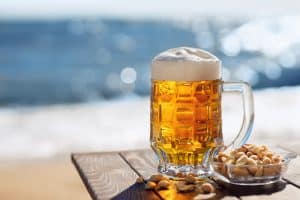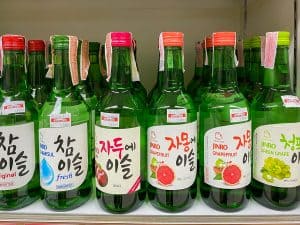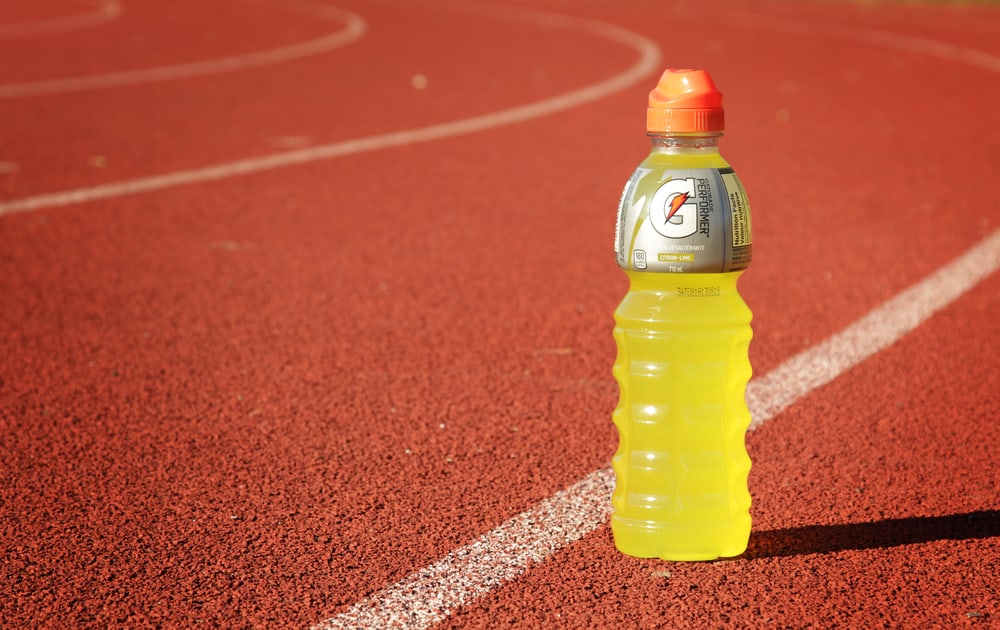
If you’re wondering if sports drinks give your ‘gym bro’ more endurance than you, you aren’t entirely wrong. Sports drinks have been all the rage in the fitness world for quite some time; some people have even stopped drinking water, the OG hydrator, because of Gatorade.
Now, you’re probably here because you also want to tread down that path and ditch water, but you might be convinced otherwise. Nothing hydrates like water. But sports drinks aren’t bad either if consumed in moderation.
So when are sports drinks appropriate for hydration
If you’re doing high-intensity exercises that last more than an hour, then water simply isn’t enough to replenish your lost electrolytes. You need sports drinks to supply your body with sugar to keep burning and energy.
Let’s dive into everything you need to know about hydrating with sports drinks.
Water Vs. Sports Drinks

Water should always be your go-to drink for hydrating, but sometimes, water can’t give you all you need. Some factors that influence what you should drink to stay hydrated include temperature, exercise intensity, and how much you sweat during the exercise.
If you’re doing light yoga and it’s cold out, so you’re not sweating much, or you’re just trying to sit through a zoom meeting that won’t end, you don’t need sports drinks to keep hydrated; water will do just fine.
However, if it’s hot out, you’re sweating profusely, and you’re exercising for more than 45 minutes to 1 hour, then sports drinks will do much more for you than water.
Did you know that you lose electrolytes like sodium and potassium in your sweat? And the amount of fluids you lose also plays a major role in your physical and mental performance.
Losing even 1% of your body weight in fluids can leave you feeling disoriented. Your physical performance will reduce significantly, and don’t even try solving a math problem.
Nutritional Value of Sport Drinks
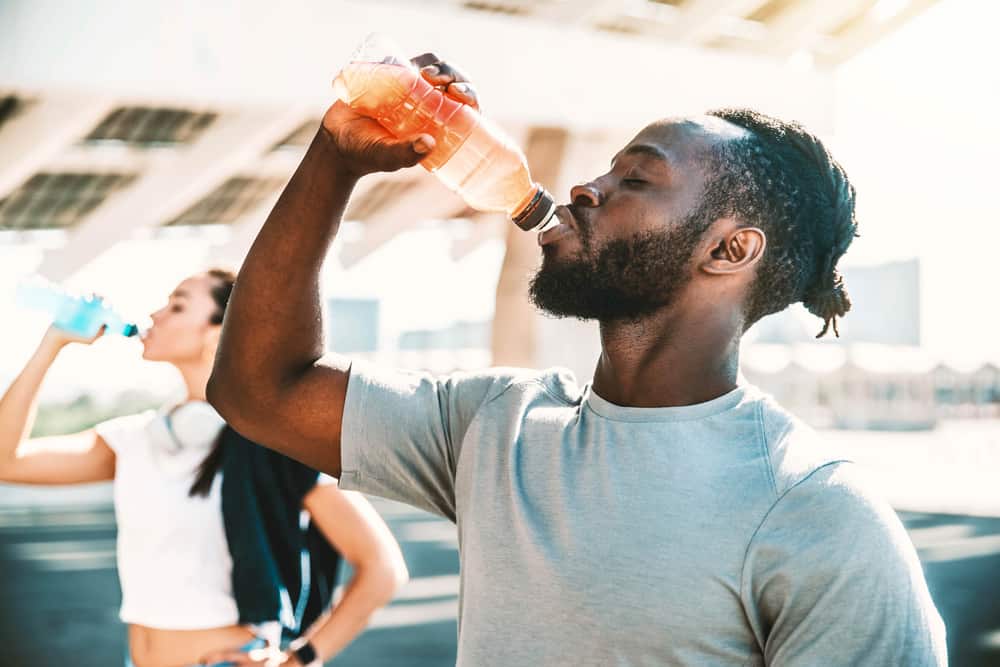
Most sports drinks typically contain electrolytes and carbohydrates. Let’s look at why these ingredients are important.
Carbohydrates
If you’re exercising on an empty stomach, sports drinks will serve you better than water because they provide easily digestible calories. Carbohydrates give you energy, and you need to have plenty of energy for an intensive workout.
Sports drinks provide carbohydrates in the form of sugar. In a 20-ounce bottle of Gatorade, for example, there are approximately 34 grams of sugar. This is lower than the average bottle of soda, but there’s a caveat.
Many people like to consume multiple bottles of sports drinks per exercise session. This is not healthy for you. Not everyone needs excessive amounts of sugar daily, so drinking multiple bottles of sports drinks will do more harm than good.
Electrolytes
As I mentioned before, you lose electrolytes during intensive exercise when you sweat. Sports drinks are loaded with electrolytes like sodium and potassium that can help you replenish what you’ve lost and keep you going.
Sodium helps your body retain water so you won’t get dehydrated quickly compared to drinking only water.
What To Look For in a Sports Drink
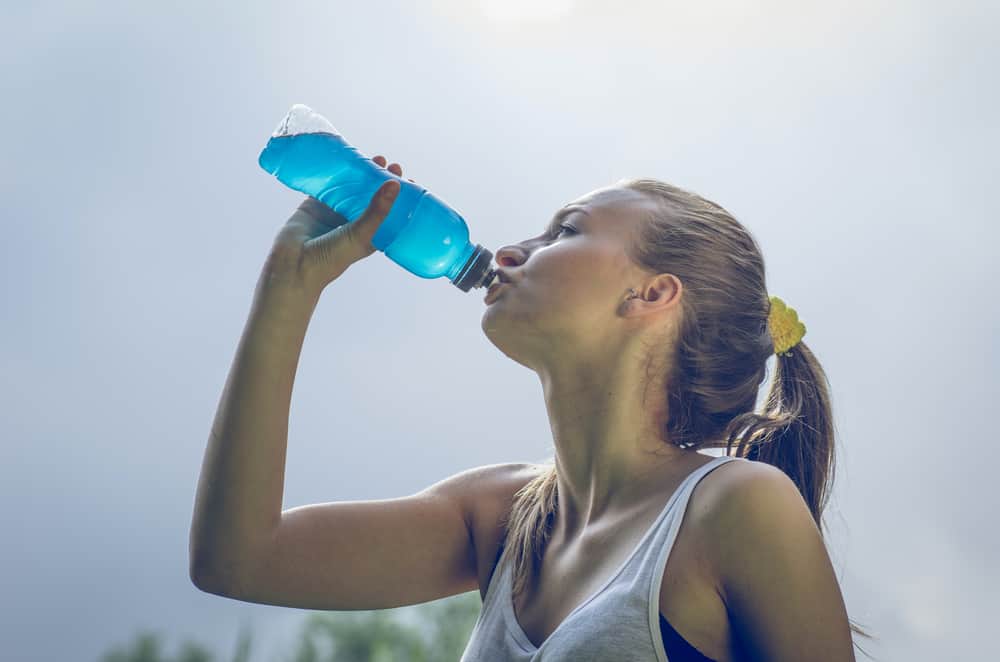
Now that you know why sports drinks are important for intensive exercise, here are some tips that can help you select the best one from the sea of options at the grocery store.
Form
You can get a sports drink in ready-to-drink liquid form, powders, and tablets. Each is designed for a specific purpose. If you’re traveling, for example, and you need a sports drink without the load, tablets or powders are your best bet.
Note that the form doesn’t affect the quality of the drink. You’ll get the same nutrients in both liquid and powdered form.
Electrolytes
Although many sports drinks have multiple electrolytes like sodium, potassium, magnesium, and calcium to replenish your lost nutrients during exercise, you only need to ensure that the main two are present: sodium and potassium.
But of course, if you find one that has more to offer, go for it.
Calories
Some sports drinks contain a lot of calories because they are made for endurance athletes that need all the calories they can get. If you’re trying to lose weight, you’ll be undoing the effect of your exercise by consuming these sports drinks.
Find out your required daily calorie intake and check that the sports drink you’re consuming isn’t going far beyond. If you’re training for a marathon, however, go for all the calories you can get.
Sugar
If you’re watching your sugar intake, go for a low-sugar option. If you’re diabetic, it’s advisable to abstain from sports drinks entirely because even though some promise ‘zero-sugar,’ they’re loaded with artificial sweeteners that may be bad for you.
Even if you have no problem with consuming sugar, stick to a few bottles to prevent future problems.
How Much Should You Consume per Session?
Some people drink sports drinks like water, which is unhealthy because you’re pumping sugar into your bloodstream every time. You don’t need to drink Gatorade before exercising. You’ve not lost any electrolytes, so water should do if you’re thirsty.
During exercise, you can take a few gulps during breaks and finish the bottle after exercise. If you need numbers, according to Healthline, you should consume about 16 ounces of a sports drink in exercise sessions lasting 1-2 hours.
Final Thoughts
Remember that water will meet all your hydration needs if you’re doing a light workout for less than an hour. If you’re doing an intensive workout for over an hour, you can use sports drinks to replenish your lost electrolytes. But don’t take too much.
Frequently Asked Questions
Experts say water is good enough for hydration in children. Some sports drinks contain caffeine, an ingredient you’d want to keep away from your kids. However, young athletes can actually benefit from sports drinks.

